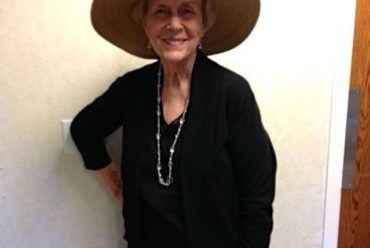Go Forward For Humanity
On a recent job interview with a Wake Forest alumna, the interviewer looked at her resume and asked, “What is it they do to you at Wake Forest? There’s something special that happens there.”
I’ve spent the last seven months researching what I’ve come to call the “Wake Forest Mystique”— trying to nail down just what it is that made one CEO tell me, “Every Wake Forest graduate we’ve ever hired has stood out and excelled. You all don’t get enough credit for whatever it is you do.”
In a world where alumni relationships and educational expectations are shifting, Wake Forest hopes to connect to its graduates in a relevant and meaningful way. So I was asked to study the Wake Forest alumni experience, particularly as it relates to Pro Humanitate, the motto that has guided us since our founding.
While interviewing alumni, many of them spoke romantically and wistfully about their time here. It was not unusual to hear statements like, “Wake Forest was transformational to me. It made me who I am today.” Or “those were the best times of my life, the best friends of my life.”
Nearly 90 percent of interview subjects told me that Wake Forest was relevant to their daily lives.
But I also got a few answers like this: “The way I see it, I worked real hard, my parents wrote a big check, and Wake Forest gave me a prestigious diploma. I think we are done here.”
#
That’s one way to look at life — as a series of transactions akin to buying a box of Krispy Kremes or negotiating the price of a car — rather than as a complex social construct that is transformational in nature.
You may view your education at Wake as an elaborate four-year transaction. And you may consider your first job as a quid pro quo for services rendered. Hard work? Corner office. Deal done. Even Steven.
I’m not sure I thought any differently when I graduated from Wake Forest.
#
While I had transformational experiences here — emotionally and intellectually — looking back, I think I was a bit of a surface dweller. I was too caught up in my social activities to consider the meaning of life. My sights were set on achievement rather than contribution.
When I left Wake Forest at the age of 21, I had no idea that driving onto campus at 50-something would still make me swoon. I loved my time at Wake. But as I was packing my trunk, I was looking forward, not back. I was excited about setting a course for my career and laying the foundation for success.
While I had a job lined up, I had no idea what I was going to be. No idea where my life would take me.
#
A few months ago, I found a copy of my first memoir, which I wrote in the fifth grade. There was a chapter — and by chapter I mean paragraph — titled “My Future” where I listed my plans for life. I had three goals. 1. Keep practicing piano and play in concerts. 2. Become a stewardess because “I like airplanes and would like to serve meals on airplanes and it would also help me with my balance.” And 3. Be a housewife with many children.
I am 0-for-3 on my predictions.
The fact is, I didn’t know much more about my path when I graduated from college some 12 years later. I was taking life at face value, planning my future based on society’s definition of success. I wanted to make a name for myself and make some money (though admittedly I got started on the wrong foot, holding the record among my friends of having the lowest-paying entry-level job upon graduation. $8,600 a year, in case you’re wondering.)
#
The career I ended up with, I stumbled upon. After a few years of working at a museum and eating Ramen noodles every night, I moved to Charlotte to work for a small advertising agency. When a client asked us to plan a grand opening for his company’s new headquarters, I found myself designing an indoor laser show, arranging for valet parking and searchlights and ordering exotic foods from a high-end caterer. Before I knew it, at the age of 24, I had opened an event marketing company. Never mind that I had avoided every business class made available to me at Wake, I was an entrepreneur on my way to success. I didn’t know why a balance sheet always balanced (I still consider it one of the Seven Wonders of the Financial World), but it turned out I was great at selling my services and creating memorable events.
Over the next 15 years, the company, and with it my reputation, flourished. We were involved with the most high-profile milestones in Charlotte’s first growth spurt. I won national awards, was featured in magazines and written up in newspapers. I still wasn’t making tons of money, but I had graduated from Ramen noodles and was driving a nice car.
And I now I had a long-term goal. One day, I would plan … a Super Bowl Half-Time show! The idea of someday having 100 million viewers watching 12 minutes of Tribble-produced spectacle was enough to get me through each day.
#
And yet, while I was enjoying all these accolades, inside I was miserable. I had no idea how to train or manage employees; I struggled with cash flow, and, well, the whole balance sheet thing began to be an issue. I dreaded the workday, resented my employees and barely tolerated my clients.
And, I began to feel off-purpose.
I found myself staring at the ceiling every night, wondering “Is this all there is?” Was I really put on this earth to plan an annual bash for 1,000 beer salesmen?
For the first time, I began to take a hard look at the transactional nature of my life. And I felt it came up lacking.
How could I spend my time planning parties with budgets the size of small mortgages when there was so much suffering in the world? How could I spend my time worrying about flowers and linens and lighting when all of humanity needed tending to?
I was ready to walk away from my business and retreat to Tibet to twirl my prayer wheel and write deep thoughts.
I was sure that these two sides of me — the practical bill-payer and the dreamy do-gooder — could not co-exist.
#
So, where does Pro Humanitate fit into this story? Well, it provided the foundation and the direction to figure out my place in life.
There is a scene in the movie “Legally Blonde” where the new law students introduce themselves. The group leader asks one guy to go first.
“My name is David Kidney. I have a masters in Russian Literature, a Ph.D. in Biochemistry AND for the last 18 months, I’ve been deworming orphans in Somalia.”
I know this not because I’m a Reese Witherspoon fan, but because an alumnus I interviewed about Pro Humanitate brought it to my attention. After he described the scene to me, he said, “If I’m not deworming orphans in Somalia, Wake Forest doesn’t think my life matters.”
We know that’s not true. But the message he heard was that the University’s interpretation of Pro Humanitate was a selfless life of service that had no place in a capitalist society.
We tell the stories of the people who sacrifice their lives to create change because they provide us inspiration to do the same in our lives. We might not see ourselves leaving our corporate jobs to fight poverty in Sierra Leone like Distinguished Alumni Award winner Karen Bruton (MBA ’84) did. But hearing her story reminds us that being called to transform one small corner of the world means each one of us can exact some change in ours — whether that’s mentoring a young person or swinging a hammer for Habitat for Humanity.
Now at the opposite end of the spectrum I heard that being a “job creator” meant living a life of service.
What, then, is Pro Humanitate? Many people I interviewed started with its simplest translation, “For Humanity.” But few people stopped there. While some went on to describe volunteerism, compassion and community engagement, others used words like “integrity,” “citizenship” and “responsibility.”
James Powell, associate professor of classical languages, goes further. He writes, “Pro Humanitate calls us to consider what we are as human beings and what constitutes genuine human flourishing.”
That sounds nothing like deworming orphans in Somalia. Or job creation, for that matter.
Pro Humanitate is a way of living that transcends the transactional elements of our existence; it’s about living a life rich with meaning that requires us to dive deep below the surface of transient and self-driven desires.
#
Mark Twain once wrote that the two most important days in your life are the day you are born and the day you find out why.
A big piece of “why” for all of us is the work we choose to do.
After I settled into my new-found enlightenment, I began to realize that the successful event planning business I had created wasn’t an obstacle for living an intentional life, it was the pathway to it. I immediately got busy redefining success for my life and my business — in the context of transformation rather than transaction.
I brought on a partner who enjoyed managing employees and knew why a balance sheet balanced. We rewrote our company’s mission to be, “to inspire others and effect positive change.” Nowhere did it mention planning a Super Bowl halftime show.
We started looking for ways to use our talents to create transformational experiences for companies and communities. Before long, our calendar was packed with meaningful work that fulfilled our need to contribute to humanity in some small way.
And, then, something remarkable happened. We began to make money. Real money. The company grew as we hired more people to keep up with demand. I became a job creator and a contributor. I had a healthy 401K and a healthy heart.
Doing good and doing well, I learned, are not mutually exclusive concepts. So as you’re creating a life of meaningful work, go ahead and create jobs and make money.
But whether you’re on the job creator end of the spectrum or more on the selfless service end, I suggest you keep a constant check on the motivation behind, and quality of, your good works.
A few years ago, a class at Harvard came up with an innovative idea to bring light to poor children. They invented a soccer ball that, after being kicked for just 30 minutes, could provide reading light in a house with no electricity. A few of the students ran with the idea, setting up a company to manufacture the balls and distribute them to disadvantaged children around the world. Their efforts were embraced by the likes of Bill Clinton and written about by publications like Fast Company.
An NPR reporter took note and returned a few years later to a Mexican village where 150 of the balls had been distributed with great ceremony. They went from house to house, asking the children to tell the stories of their changed lives. Those aren’t the stories they heard. The fact is, eight out of 10 of the soccer balls had been tossed aside because they didn’t work. The reporter asked the families what they would have liked instead. Turns out, for the $60 each soccer ball cost the charity, they could have hooked up the whole household with electricity forever.
If you’re trying to change the world, do your market research, provide an excellent product or service, and keep your motivations in check.
Doing good and doing well are not mutually exclusive. And doing good does not trump doing things well.
#
But “work for humanity” is only one part of the Pro Humanitate equation. The second, and equally important, element is “love for humanity.” The benefit we give and receive through meaningful connections resides completely outside a transactional life.
Look around this room tonight. There are people here who will be an integral part of your entire lives.
It was no mistake that Dr. Peggy Smith introduced me tonight — I asked her to. She was my favorite professor and my mentor in the art department. She taught the classes I loved most and exemplified the spirit of Pro Humanitate as she guided my college career. She even helped me get that high-paying job when I graduated. I owe you one, Peggy.
I know it may be hard to believe now, but there are professors you will talk about for the rest of your lives. You’ll think of them when you write a report, or debate the merits of a project. You’ll keep up with them on Facebook and quote them to your children. You’ll visit them on campus and emulate them at work. As one of my interviewees (now a college professor) said, “I try to see the humanity in every student I deal with. That was modeled for me by my professors at Wake Forest.”
The friendships you’ve garnered here will be with you forever. I have a group of ’82 grads (Funk Band included) who have stayed close over all these years. We shared apartments when we started our first jobs, we were in each other’s weddings, followed the lives of each other’s children and even celebrated our 50th birthdays together.
The S.O.P.H. song was called “White Rose Love.” Whenever one of us is hurting — with a terrible illness or passed parent — we all get together and send a big bouquet of white roses as a reminder of the origins of our lifelong friendship.
These are the meaningful connections that will take you through life.
#
What type of alum will you be? Will you stay connected to the place and the people who bore witness to your transformation?
One my interview subjects had an uncle on the Board of Trustees when he entered Wake in the ’80s.
“Doug,” he said, “You’ve been accepted to Wake Forest, but before you decide to go, there’s something you need to know. Wake Forest is not a four-year experience, it’s a lifelong commitment.”
If lived fully, your life won’t be a transactional existence. How can you commoditize the things you’ve experienced here? A deep conversation with a professor that will never be graded. The payoff view from the top of Pilot Mountain. The thrill of your first formal, the first sign of Spring in Reynolda Gardens, an A on a tough final, the first touchdown of the season, or Natty O’s handshake as you receive your diploma in a few short weeks?
Perhaps you’ll be in your hallmate’s wedding. Maybe you’ll come back for Homecoming even when it’s inconvenient. You may nurse your best friend through illness or hold her hand through a crisis. You might write a paper with a former professor, or name a building after a loved one. You might dress your toddler in a cheerleading uniform for every home game, or start a scholarship fund, or end up delivering remarks to a room full of seniors about to go out into the world.
Your ongoing tribute to Wake Forest won’t be measured with a check that you write. It will be carried on through the life you lead in the spirit of Pro Humanitate — a life of meaningful work, generous friendships and your commitment to human flourishing.
So, go forward, for humanity.







